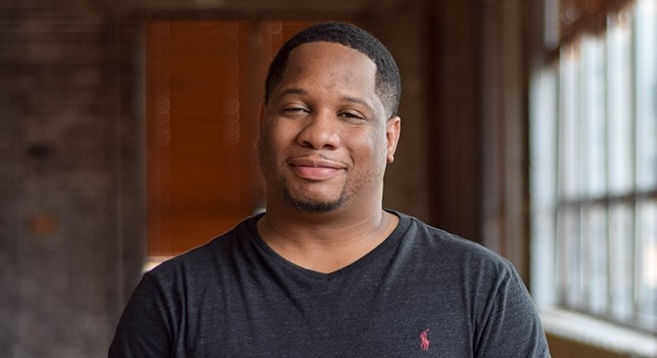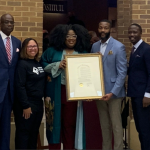By Dayvon Love
Leaders of a Beautiful Struggle (LBS) has a revolutionary pan-African nationalist perspective that prioritizes Black sovereignty and self determination.
We operate primarily in the political and policy advocacy arena with a theory of change that requires tremendous courage, rigorous intellectual work, base-building among Black people and high integrity. These are the things that we aspire to because we believe that these are essential characteristics necessary to be effective advocates for Black people.

The suffering of the masses of Black people is fertile ground for opportunism. In this capitalist society, people are looking for jobs to survive. In many cases, jobs and careers have the impact of centering themselves around advancing the careers of the people who are doing the jobs, and not the communities being served by the work at hand. It is easy for people to confuse these two things because– in this society– Black people have been conditioned to equate the accomplishments of individual Black people (i.e. first Black person to…. fill in the blank) with group success. What also makes this more complicated is that there are some Black people that will use their positions to help other Black people in their arena. While this is good, there are limitations. This route creates a class of Black people who benefit from being well networked amongst a handful of Black people that have access to opportunities due to their proximity to mainstream institutions. While this may bring on success for those involved, the Black communities being served are left relatively unchanged.
One of the things that I take pride in as a co-founder of LBS is the fact that much of our work has had a wide and meaningful impact on the masses of Black people in Baltimore. We have done the work to help to establish BCIITY in west Baltimore, an organization that invests money into grassroots organizations to address youth trauma. We have worked on the establishment of the Baltimore City Children and Youth Fund, which invests resources in Black grassroots organizations around the city with $12 million a year statutorily allocated every year. LBS has also done advocacy work on bail reform, aimed at significantly reducing the amount of people in Mayland who spend time in jail because of high priced bail premiums. We have also spent countless hours advocating for investments in community based violence prevention efforts that have empowered Black grassroots orgs to be the basis for the historic decline in violence in Baltimore in the last couple of years. These are just a few of the many things that LBS has done over the years to impact the lives of Black people. My standard for asking people to support LBS is whether we are able to deliver observable positive impact on the community.
Too many Black people in my generation characterize their own personal and professional advancement as a win for the culture. They believe that their mere presence in a space of influence or power is a win for Black people. The emphasis on appearance, clout and being cool with the right White people take precedence over a deep knowledge of history, rigorous expertise and a standard that requires that the community concretely benefit from your work.
If you are a person in Baltimore and you claim to work on economic justice, it might be hard to take you seriously if you are unaware about the following:
-Congressman Parren Mitchell’s work on minority set asides
-Walter P. Carter’s efforts on empowering community based organizations and Madeline Murphy’s work on the Community Action Agency in Baltimore
-The advocacy work of Margaret McCarty and Annie Chambers who diligently labored to provide support children and families
My generation tends to relate to history– at best– as a reference. We may drop some names and know some historical events. A more substantive relationship to our history is needed, not merely as historical references, but as a resource. We should use the blueprints that have been produced for us by our ancestors as the architecture of our thinking and the work that we produce. Which requires deep study and to take our people and our traditions seriously.
The hustle on the suffering of Black people has become normalized. I am sure that I am in the minority when it comes to this line of thinking. I also know that there are people who will be annoyed or even insulted by this commentary. But I don’t think anyone will legitimately argue against the general concept I have described here. What tends to happen is that people avoid engaging in this issue because it can flare up a range of insecurities and deep feelings. My urgency in addressing this is that the masses of Black people continue to have their suffering normalized, while a handful of us get to go to the galas, happy hours, mixers and fundraisers.
Take selfies, dance, have fun, but the question that should be addressed as the price for these forms of leisure when you are taking money in the name of empowering Black people is whether the impact of your work is meaningfully felt by our community –beyond our immediate social circles.
I am militantly committed to this standard because the fate of our community depends on it.
The post Doing the work: It’s time to get serious about excellence and what it requires appeared first on AFRO American Newspapers.










